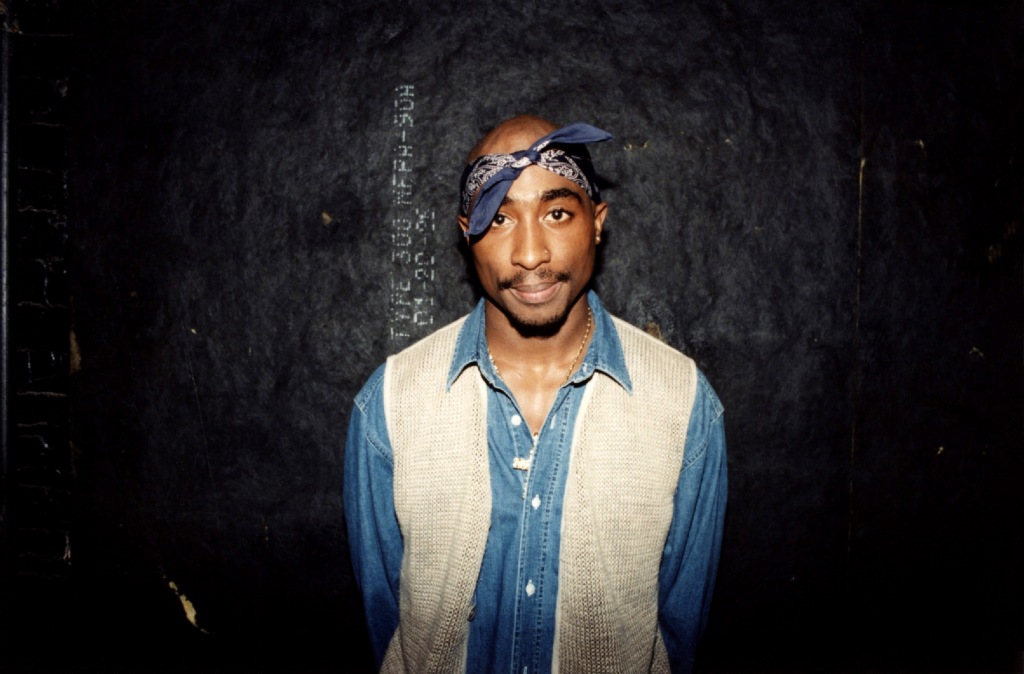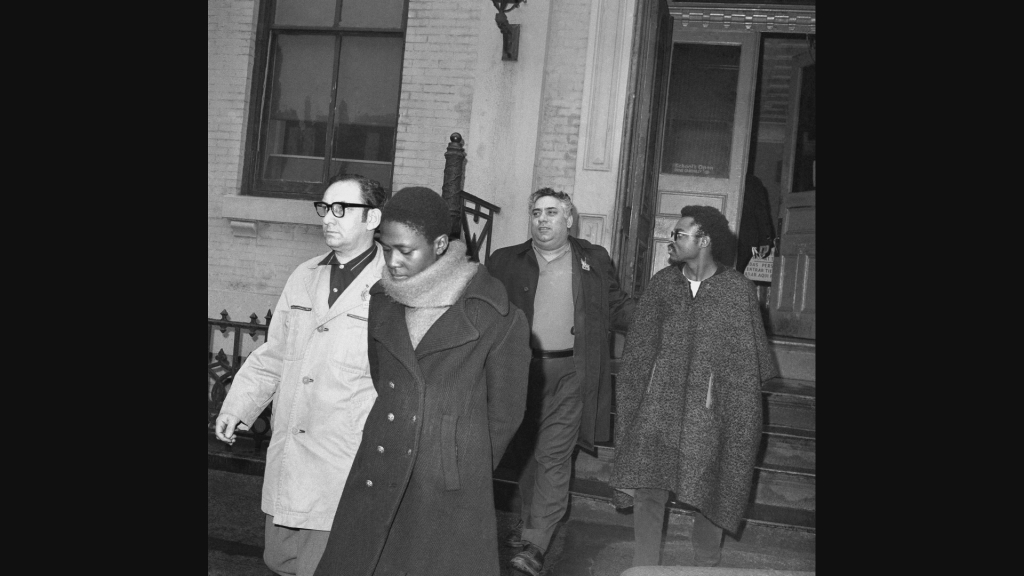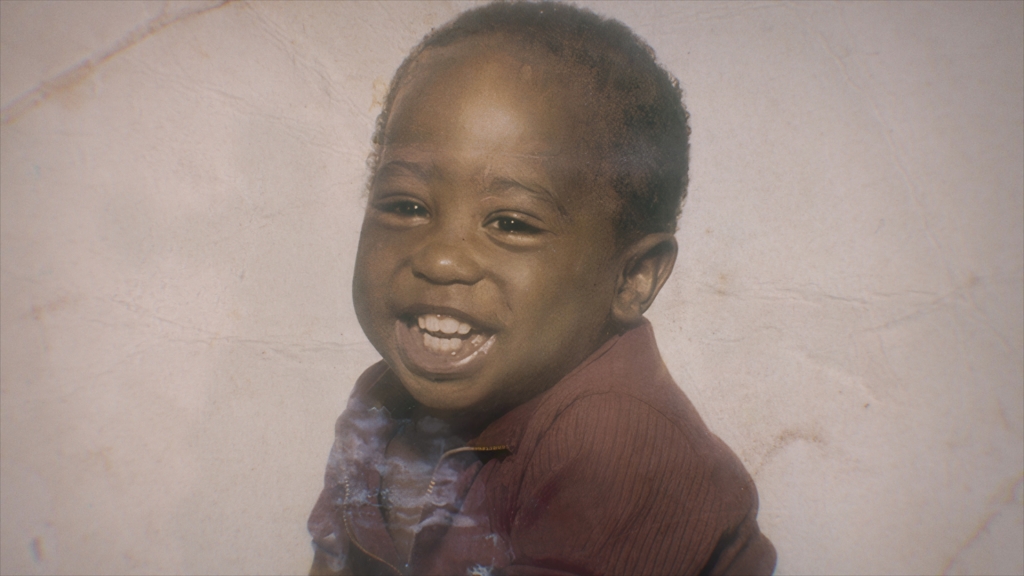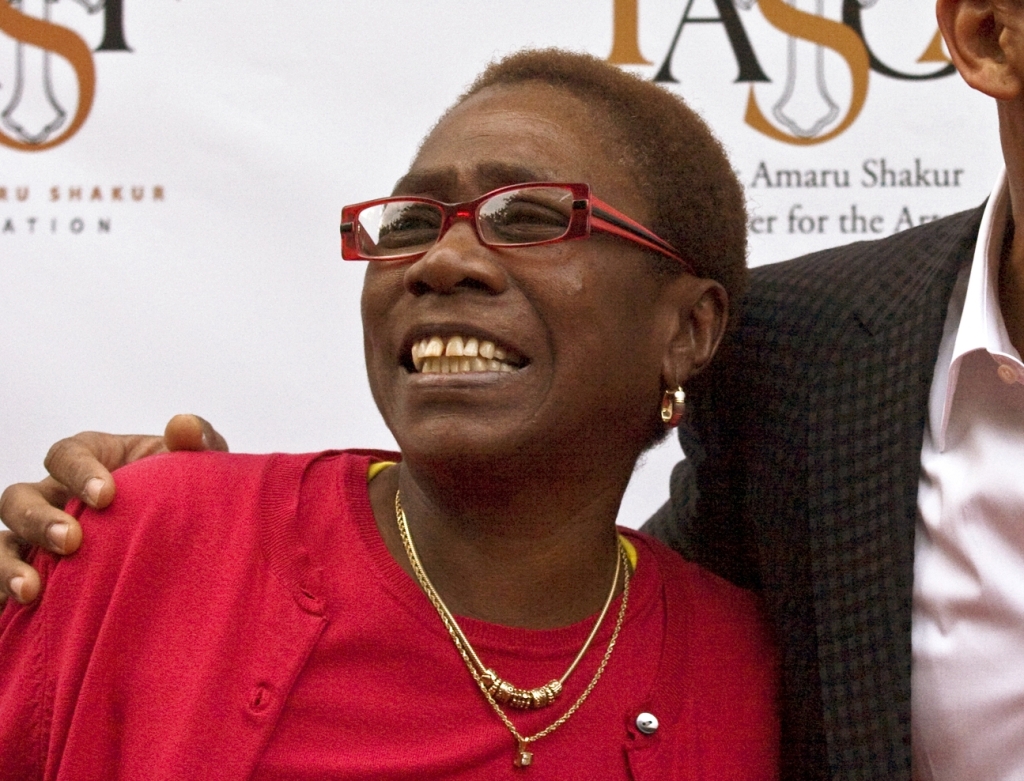Inside new Tupac Shakur documentary ‘Dear Mama’
In “Dear Mama” — a five-part docuseries that premieres Friday on FX and streams on Hulu — two of Tupac Shakur’s cousins recount, in chilling detail, how they first heard the titular classic.
They were hanging in an Atlanta hotel room with the late rap icon on Halloween 1993, just after Shakur shot two white off-duty cops. Law enforcement was standing by in the hallway.
“But Tupac — he’s calm,” Billy Lesane said, recalling his weed-smoking cousin before his arrest. “He was, like, in a peaceful trance, but I can hear the cops outside the door. Suddenly he says, ‘Yo, wait a minute, I want everybody to hear my new song!’”
The charges against Shakur were dropped — the cousins maintain that one of the officers pulled a gun on Shakur first, after he confronted them about harassing a black man — and “Dear Mama,” a touching tribute to the hip-hop legend’s mother, Afeni Shakur, went on to become his first Top 10 hit in 1995.
And in 2010 — 14 years after his 1996 murder, at age 25 — the Spinners-sampling ode was inducted as only the third rap song in the Library of Congress Recording Registry.
It’s a true testament to the impact that Shakur’s mother had on her son, with whom she was pregnant while in prison as a senior member of the Black Panther Party.

Arrested as one of the Panther 21, put on trial after being accused of planning coordinated attacks in New York City in 1969, Afeni, with no legal training, represented herself in court, and did so fiercely. She was acquitted, along with the rest of the group, in 1971.
“Tupac was conceived during the worst part of my life — I was on trial for my life,” says Shakur in a “Dear Mama” interview conducted before her 2016 death. “Tupac stayed in my womb through hell. And the Black Panther Party helped me, number one, to respect who my son was, simply because of his birth. A black male born in America in the 1970s — it was my responsibility to teach Tupac how to survive his reality.”
That reality included having to serve as a lookout for the Black Panthers as a kid — keeping an eye out for federal agents all day in Harlem — and watching his struggling single mother become addicted to crack cocaine for years.
Still, Afeni Shakur instilled her activist spirit in her son.
“I remember the last time I tried to spank my son,” she says in the docuseries, directed by onetime Shakur enemy Allen Hughes.

“He was about 13 years old, and I raised my hand to hit him, and he didn’t try to hit me back, but he blocked the blows. And … he looked at me and he said, ‘I’m never gonna let anybody beat me down.’ ”
You can hear that defiance during a 1988 interview with Tupac as a 17-year-old senior at Tamalpais HS in Marin County, California.
“We’re not being taught to deal with the world as it is. We’re being taught to deal with this fairyland,” he says. “That’s why my mother taught me to analyze society and not be quiet. If there’s something on my mind, speak it.”
In fact, Tupac was originally planning to serve as chairman of the New Afrikan Black Panther Party — a continuation of the Black Panthers — until he joined the “Humpty Dance” rap group Digital Underground as a dancer in 1991.
Then, after starring in the 1992 film “Juice,” Shakur scored a solo deal with Interscope Records — and the rest is thug-life history.


Now going by 2Pac, he was estranged from his mom for a couple years because of her addiction, but after she finally got clean, they reconciled.
Indeed, it was his mother who picked him up from jail when he was released on bail after being charged with sexual assault in 1993.
Once they got in the car, that was when Shakur played “Dear Mama” for his mom for the first time.
“It made me cry because I realized that my son had forgiven me,” she says of the song, which was released while Shakur was serving nine months in prison in 1995 after being convicted on two counts.
“It means a lot that my son wrote a song to us, ’cause it’s not just to me.”
Read the full article Here


